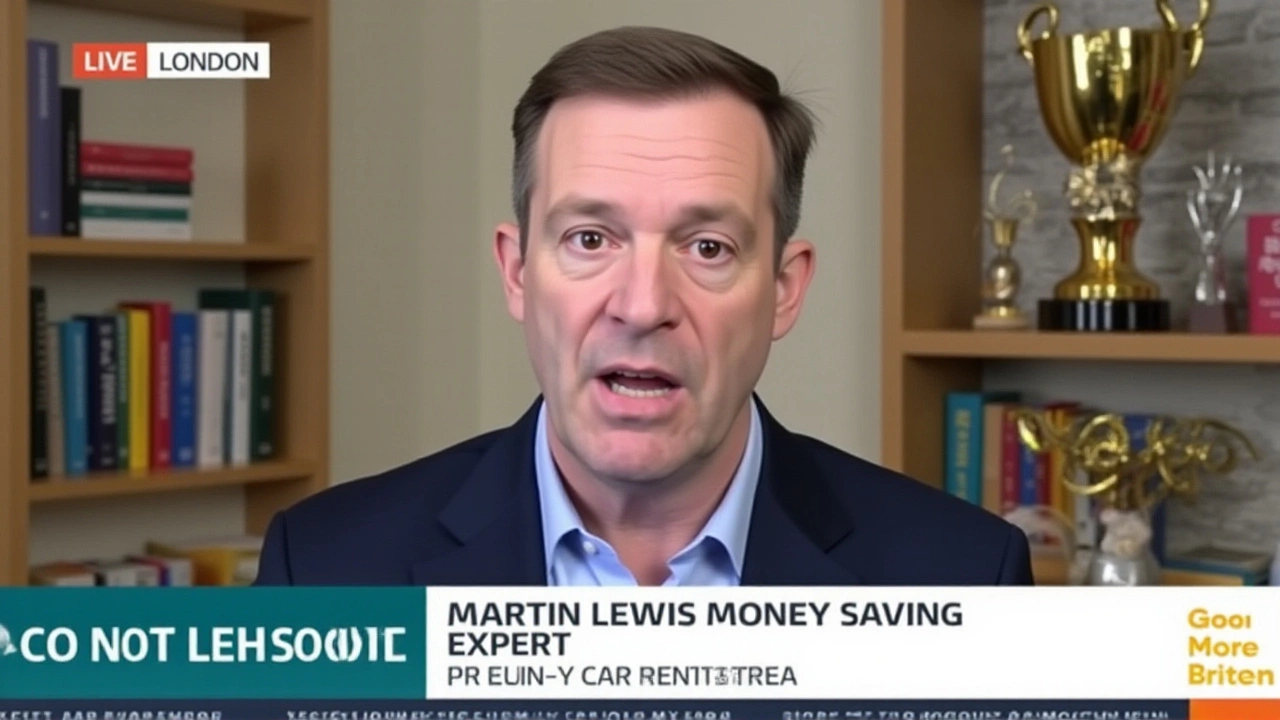When Martin John Lewis, founder of MoneySavingExpert.com, went live on YouTube on October 7, 2025, the UK’s car‑finance landscape tilted on its side.
The Financial Conduct Authority (FCA) announced a sweeping redress scheme that forces lenders to settle Discretionary Commission Arrangement (DCA) complaints by the end of December 2025. For millions of drivers who bought a car on a Personal Contract Purchase (PCP) or Hire Purchase (HP) plan between 2009 and 2019, that could mean an average of £700 back in their pockets.
Why the FCA is stepping in now
The regulator, based in London, has been swamped with DCA complaints since a surge in November 2023. Those who filed after 17 November 2023 saw their cases put on hold while the FCA sorted out the details of the scheme; earlier complainants continued through the usual lender‑driven process.
Lewis broke down the three classic mis‑selling patterns that sparked the crackdown:
- Dealers taking hidden extra commissions beyond the agreed rate.
- Dealers locked into a single finance provider, limiting consumer choice.
- Commission rates that ballooned past 10 % of the loan amount.
The FCA’s December deadline applies only to DCA‑related claims. Anything outside that realm still follows the standard Financial Ombudsman Service route.
How the redress scheme works
The FCA has dubbed the plan the Car Finance Redress SchemeUnited Kingdom. Lenders must audit their historic contracts, identify any DCA breaches, and calculate the appropriate payout for each affected consumer.
According to Lewis, the average payout hovers around £700, but the exact figure hinges on how long the finance ran, the hidden commission amount, and whether the borrower still owes money on the vehicle. In practice, that means a claimant with a £15,000 PCP that ran for three years could see a refund of roughly £800, while a shorter‑term hire‑purchase might net only £500.
For claimants lacking original paperwork—think a 2009 finance agreement that vanished with the old paperwork box—Lewis says the burden of proof flips. He advises gathering credit‑reference extracts from Experian, Equifax or TransUnion, bank statements that show regular payments to the lender, or even a signed ID form that references the finance deal.
Free tools and the danger of claims‑management firms
MoneySavingExpert.com now hosts a downloadable template, reachable at mse.me/ytCarFinanceTemplate, that walks consumers through a no‑cost DCA claim. Lewis warns that using a third‑party claims‑management company can cost you 20‑30 % of any payout, even if you later switch to the free template.
“If you’ve already paid a firm a success fee, you can still reclaim the money yourself,” Lewis told his audience at the 8:03 minute mark. “The tricky part is getting the lender to recognise the claim without the extra fees.”

What happens if a claim is rejected?
The Financial Ombudsman Service (FOS) remains the back‑stop for any claim the lender brushes aside. Established under the Financial Services and Markets Act 2000, the FOS must issue a decision within six months of a firm’s final response. Lewis notes that “most cases that reach the Ombudsman after a firm says ‘no’ are actually upheld.”
That “legalese version of you’re having a laugh, you’ve got no case” line he quoted from a lender’s rejection letter reflects the typical jargon that stalls consumers. The FOS doesn’t care about the legalese—it looks at the facts, the commission trail, and whether the consumer was mis‑led.
Broader impact on the UK car‑finance market
Historically, DCA practices were the norm from 2007‑2019, with dealers often receiving commission top‑ups that could push the total above the standard 7‑10 % rate. Industry analysts estimate that as many as 14 million UK drivers may have been exposed to such schemes, though the FCA has not released an official figure.
For lenders, the redress scheme means a significant accounting hit. Large banks like Barclays and HSBC have already begun internal reviews, and several smaller finance houses have sign‑posted their customers to the MSE template.
For consumers, the deadline creates urgency. Those who took out a PCP in 2010 and still own the car will see the lender calculate a refund based on the original hidden commission, not on the remaining balance.

What’s next after December 2025?
The FCA says it will publish a final compliance report by mid‑2026, detailing the total amount paid back and any systemic changes required. Lewis expects “a new wave of scrutiny on how finance products are marketed” once the dust settles.
Meanwhile, the regulator is also flirting with tighter caps on dealer commissions across the board—a move that could make future car‑finance deals far more transparent.
- Key dates: FCA proposal announced 7 Oct 2025; DCA deadline 31 Dec 2025.
- Average payout: ~£700 per successful claim.
- Eligibility: PCP or HP contracts from 2009‑2019 with hidden dealer commissions.
- Proof options: Credit‑reference files, bank statements, signed ID forms.
- Free claim tool: MoneySavingExpert.com template.
Frequently Asked Questions
How can I prove I have a DCA claim without original paperwork?
Gather any credit‑reference extracts from agencies like Experian, Equifax or TransUnion that show a loan entry for the car finance. Complement those with bank statements that display regular payments to the finance provider, and if you still have a signed ID form that mentions the loan, include that as well. These pieces together can convince the FCA or the lender that a DCA breach occurred.
What happens if my claim is rejected by the lender?
You can escalate the dispute to the Financial Ombudsman Service. The FOS will review the evidence and, if it finds the lender mis‑sold the finance, it can order a refund or compensation, typically within six months of the complaint.
Do I need a solicitor to submit a DCA claim?
No. MoneySavingExpert.com provides a free template letter that walks you through the claim step‑by‑step. Using a solicitor is optional and usually unnecessary unless the case becomes particularly complex.
Will I still get money if I never contacted my finance provider?
For qualifying DCA cases, the FCA says the lender will proactively reach out once the redress scheme is finalised. However, confirming your details through the MSE template speeds up the process and reduces the risk of missing out.
Can I still claim if I used a claims‑management company?
Yes, but you may still owe the firm a success fee, typically 20‑30 % of any payout. You can switch to the free MoneySavingExpert.com template to avoid further fees, though you’ll need to sort out any outstanding payments with the original firm.
